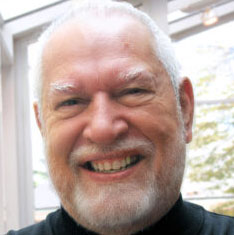From Georgia State, Vincent speaks with economics professor Paula Stephan about the ways science is supported in the US, how universities offload risks, the absence of risk-taking, and much more.
William Summers joins the TWiV team to discuss some virology history, including the ever-changing concept of ‘virus’ and the contribution of phage research to the study of animal viruses
Amy joins the TWiV team to review evidence that enterovirus D68 is an etiologic agent of childhood paralysis, and her finding that the ability of the virus to infect cells of the nervous system is not a recently acquired property.
The League of Extraordinary Virologists celebrate the eradication of wild poliovirus type 3, and consider the effectiveness of an influenza vaccine produced in insect cells, and how small RNAs are protecting the Koala germline from retroviral invasion.
At Aarhus University in Denmark, Vincent speaks with Trine Mogensen, Søren Paludan, Ole Søgaard, and Madalina Carter-Timofte about their careers and their work on sensing herpesviral DNA, immunodeficiencies that predispose to severe viral infections, and the path to a cure for HIV/AIDS.
The TWiV pro-vaxxers reveal viruses that infect endangered wild salmon, and how iron in host serum modulates dengue virus acquisition by mosquitoes.
In the second episode from the Karolinska Institute in Stockholm, Vincent speaks with Jan Albert, Petter Brodin, and Anna Smed Sörensen about their work on enterovirus D68, systems immunology, and human pulmonary viral infection and inflammation.
The TWiV team covers outbreaks of eastern equine encephalitis virus in the US and poliovirus in the Philippines, and explain how a chemokine induced by HIV-1 infection helps release more virus particles from cells.
The TWiV team reveals the protein corona that surrounds virus particles and influences infectivity and amyloid aggregation, and a proofreading-impaired herpesvirus that produces quasispecies-like populations.
From the Karolinska Institute in Stockholm, Vincent speaks with Niklas Björkström, Ali Mirazimi, and Matti Sällberg about their work on the impact of chronic hepatitis C virus infection on NK cells, Crimean-Congo hemorrhagic fever virus vaccines, and immunotherapy to block entry of hepatitis B and D viruses.





